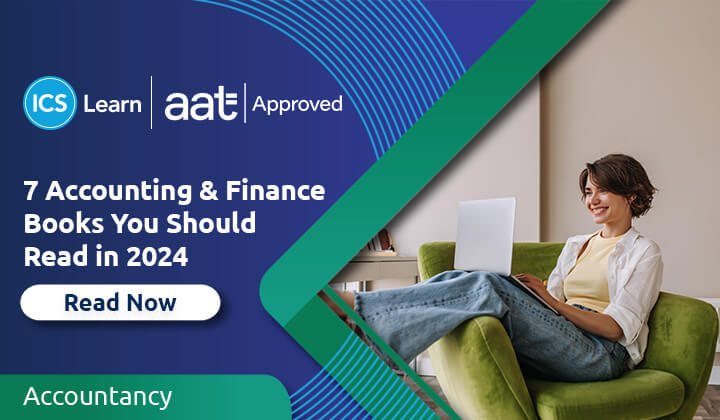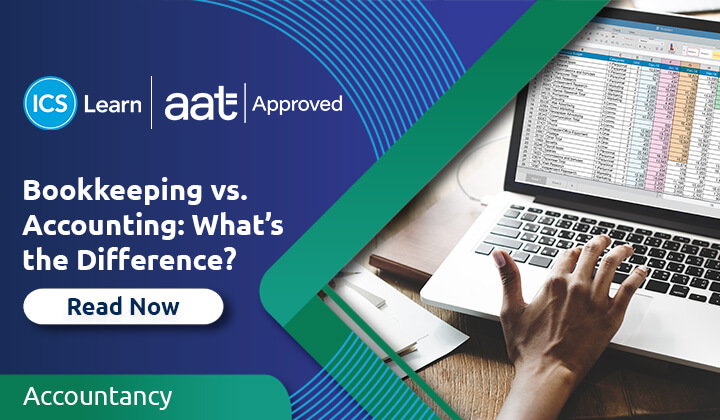Accountancy

4 Tips for Managing Financial Health

01 August 2023 - 4 min read
Whether it be preparing for retirement, investing in a property, or simply saving for the event of an emergency, these days we’re all feeling the pressure to take control of our financial health as the cost of living continues to rise.
Managing your financial health, however, can be quite a daunting undertaking, especially if you’re not sure where to start.
Not to worry! To help guide you, we explore the 4 best tips for managing your financial health to help take your money management skills (or lack of thereof) to the next level.

1. Track Your Expenses - Dave Ramsey
American radio host, Dave Ramsey, offers solutions to people facing financial difficulties through his national syndicated radio programme The Ramsey Show, and claims that tracking your spending “is the number one secret to staying on top of your budget”.
Ramsey suggests that, “when you buy something, when you pay a bill, when you spend money at all… you need to put those expenses in your budget. That way you’ll know exactly how much you have left to spend”, and you won’t exceed the budget you’ve set.
Before you begin to outline your expenses, it’s important to recognise that on a fundamental level there are two types of expenses: fixed and variable.
Variable expenses can usually be quite detrimental in eating away at your bank account, especially if they occur frequently, however, they’re easy to track, as they’re manual purchases, allowing you to take action on them.
On the other hand, fixed expenses take place on a recurring basis, usually monthly, and tend to involve things such as water bills, electricity bills and rent. These can be more tricky to manage, as you may find yourself excusing these much easier, justifying them as necessities.
For this, before signing up to a subscription, such as a phone device paired with a service plan for example, know your options, do the maths and figure out which is truly the best deal for you in the long run. You can use this handy budget calculator to help you calculate all that.

2. Don't Rely on Just One Stream of Income - Robert Kiyosaki
While this piece of advice may not be new to you, it still rings true.
According to Robert Kiyosaki, author of best-selling book series Rich Dad, Poor Dad, with over 32 million copies sold worldwide, you should not “rely on your job for income, but instead focus on creating multiple streams of income through investments and business ventures”.
His belief is that improving financial health does not necessarily mean cutting back on your spending and actively saving.
Alternatively, trying out collaborative economic platforms, such as Depop, Craigslist, Etsy, Gumtree, eBay, where you can sell clothes, accessories, home appliances - and really anything - you no longer use is a great way to earn some extra money. Not only that, but it can also help promote greener and more sustainable consumption habits.
Investing is also a great way to generate an additional income, such as buying shares in a company you believe has potential to grow, contributing to investment funds and bonds. However, if you’re not comfortable investing on your own, it might be a good idea to consider hiring a finance professional who can help you along.
Nevertheless, before going ahead and doing so, it’s vital to make sure that you are well informed. The right choices will depend on different factors, like your investor profile, the risk you’re willing to take, as well as the microeconomic expectations.
3. Get Out of Your Debt - Suze Orman
#1 New York Times Bestselling Author on personal finance, with over 25 million copies in circulation, Suze Orman, supports that, “Debt is bondage. You will never, ever, ever have financial freedom if you have debt”.
For that reason, Orman, who has appeared on The Oprah Winfrey Show and The Today Show, as well as a column in O Magazine, believes that “you are asking for trouble if you carry credit card debt right now”, explaining that the “interest rates you are charged are rising” - a statement that couldn’t be more true than it is today.
In the simplest of terms, if you have a lot of debt, it means that you don’t have enough cash flow that will allow you to make savings. Orman’s advice is to try and pay your debt as soon as you can. This will benefit you in the future, preparing you for an adverse situation, such as a decrease in your income, an unforeseen expense or an increase in your interest.
Start off by making a list of things you’re in debt for and their respective amount, to keep you accountable and on track. Then begin to plan your debt payments based on your financial capacity. It’s important to remember however that in some instances debt is necessary and unavoidable. For that, here are some tools and platforms you could make use of to help you navigate and climb out of your debt.
Additionally, before taking out a future loan, you should first ask yourself whether the product or service you want to buy is absolutely necessary or if you could make the purchase at a later time.

4. Invest in Yourself More - Warren Buffett
Known as the “Oracle of Omaha”, Warren Buffett is the chairperson of Berkshire Hathaway, a multinational conglomerate company which owns a dozen other companies such as the Dairy Queen restaurant franchise, Duracell batteries and insurer Geico.
Being one of the most successful investors of all time, Buffett believes that investing in yourself as much as you can is the best policy. “You are your own biggest asset by far. Anything you do to improve your own talents and make yourself more valuable will get paid off in terms of appropriate real purchasing power”, according to Buffett.
Similarly, to any other asset, the more you invest in it, the more valuable it becomes. The same thing goes for yourself, your talent and your skills.
Not only that, but as Warren Buffet suggests, “anything you invest in yourself, you get back tenfold”. And unlike other assets and investments, “nobody can tax it away; they can’t steal it from you”.
However, this doesn’t only involve formal education and degrees. Anything you’re doing to learn and grow is worthwhile. That could be reading, taking an online course, or even personal development programmes.
You can always be proactive and learn a skill before you need it too - you never know when it’ll come in handy. This can also help you keep an open mind on what you learn. Nowadays there are so many free courses to help you grow that the options are truly limitless, but don’t be afraid to spend money on something that will help you grow.
Still need help with managing your finances and spending?
Then it might be a good idea an accounting professional who can help organise your finances, streamline complicated tax laws and help you stay on top of tax payments, as well as help you make some savings.

What is an Accountant?
Accountants are professionals who are often hired to manage financial transactions, from fixed and variable expenses, to bank deposits and setting financial budgets. Essentially, they’re financial superheroes that take care of complicated financial documents so that you don’t have to.
The most important thing when working with an accountant is to be completely transparent with them. It’s vital that they get to know you well in order to understand your current spending and saving habits, income and expenses in order to assist you where it’s needed.
With this information accountant scan then take care of all your financial obligations, from paying your taxes, to reviewing balance sheets and provide you with advice on savings and investments based on your financial health. Together you can refine short-term and long-term financial goals, to help keep you accountable and on track.
Elevate your finance and accounting career with a 100% online AAT qualification. Enrol today and watch your career take off
Download Your Free AAT Course Guide
Get information on our AAT courses
Share this post
7 Accounting and Finance Books You Should Read in 2024
Learn useful new skills and progress your financial career by taking helpful advice from the expert authors of these books.
Bookkeeping vs. Accounting: What’s the Difference?
Bookkeeping and accounting are two terms that are often used interchangeably among those less savvy in the finance world. If you’re struggling between choosing a career in Bookkeeping or Accounting, this blog will provide you with some clarity, outlining the difference between the two so that you can make an informed decision.














